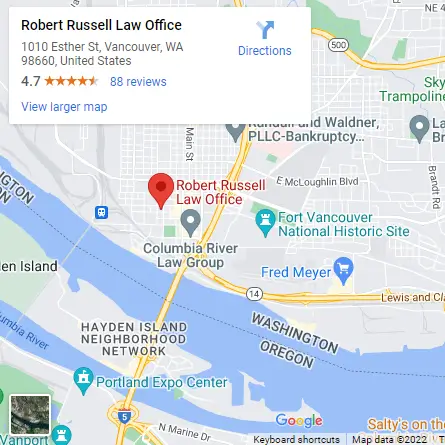
We live in uncertain times. It’s alarming how many lives are lost from climate change and COVID-19. Now is the time to think about how to provide your hard-earned assets to your loved ones. That’s when a trust or will comes in.
Trusts and wills are useful estate planning tools that let you pass on your property and your money to your heirs. In this article, we’ll discuss the major differences between the two so you can decide which option is for you.
If you need help with deciding how to care for your loved ones when you pass away, it’s best to talk to our experienced Vancouver estate planning attorneys. Get in touch with our law firm today to get started on your estate plan!
Trust
A trust is a fiduciary agreement that allows you to pass on your assets to your heirs. To better understand what that means, it’s best to know the people involved in a trust:
Important Roles in a Trust
Grantor
Also known as the settlor or trustor. This is you, the person who creates the trust.
Trustee
The trustee is the person you appoint to manage the assets and distribute assets according to the instructions of the grantor.
Beneficiaries
These are the people or entities who will receive the assets of the trust. Lifetime beneficiaries receive the assets during your lifetime. Remainder beneficiaries will get their share once the grantor passes away.
Types of Trust
There are many different types of trusts out there depending on your needs. Many of them fall into two categories: revocable trusts and irrevocable trusts.
Revocable Trust
These are also known as revocable living trusts. These types of trusts allow you to revoke the trust or add and remove assets from the trust as you wish. Once you pass away, it becomes irrevocable.
Irrevocable Trust
These kinds of trusts are permanent. This means that all the terms and assets cannot be modified in any way. Many types of trusts and benefits require the trust to be irrevocable to work properly. Take note that a trust is its legal entity and transferring assets into the trust removes it from your name. This is what allows it to maneuver within the law to fit your needs.
It’s important to have your estate planning documents in order. The world of trusts can be complicated and it needs specific legal wording to function properly. An experienced estate planning attorney can ensure that the trust agreement works exactly as you want.
Pros and Cons of a Trust
Advantages
The main benefit of a trust over a will is that it allows you to avoid probate. This provides many benefits.
A trust keeps your family’s privacy. Probate records are available to the public. Almost anyone can ask the court clerk for probate documents and see what went on during the administration of your will. Avoiding probate keeps your family affairs away from the public eye.
A trust ensures that your beneficiaries receive their inheritance. The probate process lets other people contest your will, which means there’s a chance that your assets will go to someone you didn’t want to. If you avoid probate, you make sure that your hard-earned money and property go to your loved ones.
A trust lets your heirs enjoy their inheritance. Probate is tedious and expensive. It can take months, even years! Your loved ones will have to spend maybe thousands of dollars on court-related fees. While all that’s happening, they can’t lay a finger on their inheritance. Avoiding probate makes your beneficiaries’ lives much easier.
Disadvantages
The only real disadvantage of setting up a trust is the associated costs. However, in the long run, a trust can save you and your family. Not only do you spend less from avoiding probate, but there are also tax benefits you can take advantage of that will more than make up for what you spend for your trust.
Wills
Also called a last will and testament, this is a legal document that expresses a deceased person’s wishes about different aspects such as distribution of their possessions to naming a guardian for their children. If you write a will, it will only become active after death.
Probate
All wills go through the process of probate. This refers to the legal process where your will is proven and validated. It’s also through a probate that your will is administered. No matter how well you draft your will, it still is possible to have problems pop up during the process, such as a family member seeking a bigger share of your assets or contesting the validity of your will.
Intestacy
If you pass away without a will, then that means you die intestate. If this happens, it’s the law that will determine what happens to those that should have been in your will, such as inheritance of your belongings and guardianship of your children.
Pros and Cons of a Will
The main benefit of a will over a trust is its simplicity. Even if a will goes through probate, it still provides you the following benefits:
Advantages
A will is cheap. It is inexpensive to draft a will than to set up a trust.
A will is versatile. A will does so many things.
- A well-constructed will can let you give important objects and your money to whomever you want.
- A will can allow you to disinherit your children or even your spouse in some cases.
- It lets you handle the guardianship of your minor children in your passing.
- If the beneficiaries of a life insurance policy die before you, a will lets you distribute the proceeds.
A will saves your family from headaches. Even if the will goes through probate, it’s much better than not having a will at all. This makes probate much easier and much cheaper than if you were to die intestate.
Disadvantages
The main downside of a will over a trust is that it goes through probate. This means that:
Your family affairs are made public. Since probate is a matter of public record, it’s easy for anyone to find out what they need to know in the probate files.
Probate lets people contest your will. People are allowed to contest the validity of your will and claim some of your assets for themselves. This means that there’s a chance that other people get a hold of your valuable possessions.
Probate takes time and money. Probate can be expensive and time-consuming.
Final Thoughts
It’s important to have your estate plan as early as possible. Either a will or a trust can be an immense help to make sure that those you love get the assets you’ve worked so hard to earn.
Our estate planning lawyer at Robert Russell Law Office can help you figure out how to handle your assets. We can help you to protect them now and protect them in the future!
Don’t delay. Call our Washington estate planning office now to schedule your consultation and get started on your estate planning.






